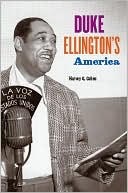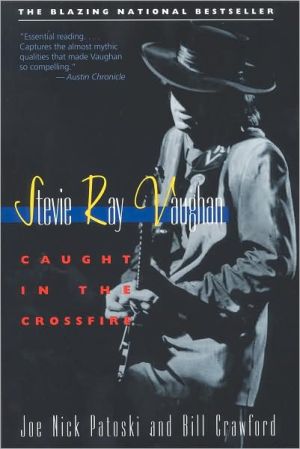Can't Be Satisfied: The Life and Times of Muddy Waters
The epic, rollicking, up-and-down life of Muddy Waters, who went from Mississippi farmhand to musical legend, who invented electric blues and created the template for the rock-and-roll band and its wild lifestyle, is brought into sharp focus in this widely acclaimed biography. photos.
Search in google:
The epic, rollicking, up-and-down life of Muddy Waters, who went from Mississippi farmhand to musical legend, who invented electric blues and created the template for the rock-and-roll band and its wild lifestyle, is brought into sharp focus in this widely acclaimed biography. photos. Entertainment Weekly Gordon tells the tale with deeply researched hellaciousness...he nails the sound of men beating on the devil with guitars...grade A.
Can't Be Satisfied\ \ By Robert Gordon \ Little, Brown\ Copyright © 2002 Robert Gordon\ All right reserved.\ ISBN: 0-316-32849-9 \ \ \ \ Chapter One\ Muddy Waters usually told people he was born in Rolling Fork, Mississippi. That's in Sharkey County, the lower quarter of the Mississippi Delta. Rolling Fork was where the train stopped, where Muddy's family would get their mail and do their shopping. Rolling Fork was on the map. But Muddy's actual birthplace is to the west and north of there, in the next county over-Issaquena, pronounced "Essaquena," the initial "e" the only thing soft in this hard land.\ Berta Grant, Muddy's mother, lived next to the Cottonwood Plantation, at a bend in the road known as Jug's Corner. It was a tiny settlement in the shadow of the Mississippi's levee, a cluster of shacks and cabins undistinguished from most others in the Mississippi Delta. Among locals, however, Jug's Corner was well known: they had the fish fries on Saturday nights.\ At Jug's Corner, and throughout the Delta, farmhands partied on the weekend because they'd survived another week, because the land didn't swallow them, the river didn't drink them, the boss man didn't kill them, and the mud, a half step from the dust and ashes from whence they came, did not engulf them.\ Muddy's father, Ollie Morganfield, used to attend those Jug's Corner frolics. Ollie was from the Magnolia Plantation on Steele Bayou, two miles between Jug's Corner and Rolling Fork. Big boned and handsome, he could entertain with a guitar. "Ollie could play good blues," said one long-lived resident of Issaquena County. "He'd go around, folks would get him to play at a party. Dark, tall, real friendly. Full faced. Sing? He used to holler. Played old-timey blues."\ "I've heard them say that a party didn't brighten up until Ollie appeared," recalled his son Robert Morganfield, Muddy's half brother. "He would sing, blow a jug, play guitar, beat a washboard." Ollie was five-feet, eight-inches tall, with brown eyes and black hair. Born October 20, 1890, he was twenty-one the summer of 1912, already the father of one child though separated from his wife.\ Berta-probably Alberta or Roberta, but called Berta by everyone -lived with her younger brother Joe and their mother, Della Grant. Berta was a young girl the summer she conceived her only child. There is no record of Berta's birth or death, no one left alive who knew her. If she was counted in any census, she has eluded researchers. Like Jug's Corner, she was off the map, a cipher around which scant information is collected: Berta was born between 1893 and 1901. Her mother, Della-Muddy's grandmother, a plump, light-skinned woman-was born in 1881, so Muddy's grandmother was all of thirty-two years old when Muddy was born in 1913. (Generations came quick in Muddy's family: his own granddaughter was thirteen when she first conceived; Muddy's response was, "Young girls make strong babies.")\ Ollie brightened Berta's party that summer's eve (probably the July 4 weekend), and the next spring, on April 4, 1913, Berta-at least twelve years old, but less than twenty-gave birth to a boy. (It was, despite what would later be sung, neither the seventh hour nor the seventh day; it was not the seventh month and there were not seven doctors. But like the lyrics to "Hoochie Coochie Man" suggest, Muddy did seem born for good luck, he did make pretty women jump and shout, and everybody knew that blues and sex were what Muddy Waters was all about.) Though his parents never married, the child was given his father's last name: McKinley A. Morganfield.\ In years to come, after he moved to Chicago, Muddy usually told people he was born in 1915, oddly shaving only two years off his age (if his goal was to appear younger for the entertainment field). He thus became a man born in a year he wasn't born in, from a town where he wasn't born, carrying a name he wasn't born with.\ The Morganfield name was relatively new to the Jug's Corner area. The Delta had been a swampy jungle of wildcats and bears when David Morganfield, Muddy's grandfather, arrived from Birmingham, Alabama at the turn of the twentieth century. His wife had died and he carried with him three sons, Ollie, Eddie, and Lewis. Birmingham must have offered very little, for the family left the city and moved to the poorest region in the nation's poorest state.\ David Morganfield was a man of some heft, and he found work in Issaquena County as an ox driver. "I've heard people say he was the only man they ever saw turn a team of oxen away from water when they get hot," said Robert Morganfield. "They say up here from [the town of] Glen Allan, he was hauling some logs and those oxen was hot and saw Lake Washington and started for it, and he demanded them to go a different way. When they didn't, he was good with a whip-they tell me he could put one to the ground with the whip- and he turned them around."\ Ollie, the eldest son, found work as a mule skinner, hauling logs from cleared land to a groundhog sawmill in the woods and sometimes more than forty miles to the large mill in Vicksburg. As it was cleared, the richness of the Delta's alluvial soil revealed itself. The Mississippi Delta is a large bowl that runs from Memphis south to Vicksburg, bounded by the Yazoo River to the east and the Mississippi River to the west. It is North America's mulch basin, the dumping ground for the mighty Mississippi River's deposit of fish and animal bones, decomposing trees, and topsoil from mountaintops in the north central states-the erosion of a continent. It is sixty-five hundred square miles of mellow, black, loamy soil, centuries in the making and much of it more than a hundred feet deep. A flood plain, the Delta is everywhere flat, except where the Chickasaw Indians built burial mounds-sites on which the earliest white settlers established their homes. Once the levee system was finished in the early twentieth century, landowners became rich. Vast plantations were established, many of which are still maintained by the original families, thousands and thousands of acres spread over dirt so blessed and smooth that locals refer to it as ice cream soil.\ In the Mississippi Delta, cotton determined the rich and the poor, the poor and the poorest. It determined who had butter with their bread, when school was in session, and what weeks men would stay up late and get up early. Break the land, plow, plant, cultivate, pick, gin; the plant dictated how a man spent his day, his season, his life. King Cotton.\ The cotton plant is a perennial, and it would grow forever-become a tree-but for the frost, the freeze, and the floods. (Before plant control through chemicals, cotton grew over six feet tall.) Mississippi cotton is planted in mid-April, after the danger of freeze and when the river waters have settled. When the plants begin to sprout, the cotton is chopped; row by cold steel row, the Johnson grass and morning glory vine that can choke the plant are hoed from around it and the plants are thinned. Come midsummer, the cotton plants flower, and the farmer knows the harvest will begin in fifty days. The next weeks are less labor intensive, the lay-by, when churches hold mass baptisms, doctors tend to the sick, and the healthy tend to the farm errands and the business of partying.\ Cotton is green when it opens, and weighty. The longer it sits, the drier it becomes, and less weight equals less pay. The bolls nearest the ground open first, and field hands would pick every opened boll of cotton, then come back and pick again. Cotton sacks were seven to nine feet long and held about a hundred pounds. They strapped over the shoulder, the mouth hanging open, so in one fluid motion the boll was picked and sacked. Most adults filled two sacks a day. Some could fill five. Harvesters worked from sun to sun; they didn't need hands on a watch. Like all of them-his father, his mother (about whom so little else is known), his brothers, sisters, cousins, and friends-Muddy Waters picked cotton. On someone else's land.\ The sharecropper. Also called the tenant farmer. When sharecropping was conceived during Reconstruction, the noble idea was to empower the poor laborer with the responsibility of land, for which he would pay the landowner with a portion of what he raised. But landowners had other designs, indenturing their help through crafty accounting and debt. Working as a sharecropper was like being knocked to the ground every time you started to stand up.\ According to the office manager at Stovall Farms, the plantation where Muddy was raised, "The fairness of what the sharecropper got was strictly based on the moral fiber of that particular plantation owner. No two landowners did it the same way."\ "What the sharecropper got" was called "the furnish." That included a cut of land (ten or so acres) and a tenant house on that land; field hands stepped out the back door and went to work, wasting no time with travel. The furnish included seed, tools, mules, and credit at the plantation store.\ The sharecropper, in return, gave the landowner half of his harvest and then had his expenses deducted from what remained. Prices at the plantation store were often set arbitrarily high. Fees were assessed over which the 'cropper had no control. Most did not have the mathematical or literacy skills to challenge the accounting. Settlement came at Christmas, and Delta farmers still tell of one landowner who invited each 'cropper individually into his office, served bonded whiskey from his good glassware, then asked the farmer whether he wanted to take home a thin check or run his hands through a tub of silver dollars and carry home an armload.\ A plantation was a privately owned small town, and its owners generally ignored what few laws or protection its citizenry might have been entitled to. Many farms minted their own tin scrip- "brozine"-good only at their store. Some provided regular visits from a doctor. Each had its own moonshiner. The Stovall Plantation built a juke joint for its workers-right next to the commissary, which supplied it; the farm got its cut of everything. The nearby Dockery Plantation maintained a brothel for its men. The furnish meant you wouldn't die; a good boss meant comfort, a chance at solvency, possibly progress. Families too far in debt fled a plantation in the cover of night. Those caught bought a trip to the company store, the site of plantation justice: a farmer wearing a big hat, meting out beatings.\ Don't cross the boss. That was the guiding principle for the sharecropper. Stay in your place, laugh at his jokes, and you could reap the benefits-a warning of an imminent moonshine bust, a better handout from the kitchen when making a delivery at the big house. Sharecropping put the field hand on a treadmill, robbing him of his selfworth; debt was so arbitrary and constant, it didn't matter if he got ahead.\ Sharecropping-getting less than half of what you've got coming to you-was good training for a life in the music business. The tenuousness of the sharecropper's life was reflected in the geography itself. Flooding often and suddenly, bringing death or crop ruin-a slower death-the Mississippi River inflicted punishment with its discharge. But it also brought life, the rich topsoil, the loam, the minerals and decay that replenished the strength that man sapped through cotton farming. Like everyone that lived so closely to and so closely off of the land, Della Grant knew these truths as well as she knew the layout of her small home. She lost her daughter, McKinley's mother, soon after he was born. No one knows what killed Berta- childbed fever, a neglected cut, or an incautious walk through the night woods. Some sort of waters rose, then receded, and she was gone. It was left to Della to take McKinley as her own and to raise him with her son Joe, three years Muddy's senior.\ When her beloved grandson, now her son, took to playing in the dangerous waters that were everywhere around Jug's Corner, Della tried to stop him. (The Mississippi Delta drains south and east, making the Issaquena and Sharkey counties the marshiest.) Knowing that something could carry him off as quickly and as surely as her own Berta was carried off, Della assumed what little power she could. She put the danger and dankness and mystery and life of those shallow brumal fluids into a name the boy would carry through his life. She renamed him Muddy, as if by claiming the Mississippi's cruel and divine identity for this child she would somehow neuter its power.\ (It would be years later, when he was establishing himself as a performer, that his friends would add "Water" to his name, and the final "s" would come in Chicago when McKinley's transformation was complete.)\ Della struggled at the Cottonwood Plantation. "My grandmother," Muddy told the authors of Beale Black and Blue in the mid- 1970s, "she furnished for me and my uncle. She was a woman, she didn't know how to get out there and hustle as good as some men. I know I got up one Christmas morning and we didn't have nothing to eat. We didn't have a apple, we didn't have a orange, we didn't have a cake, we didn't have nothing."\ Eventually Della Grant moved with her son and grandson eighty miles north to Stovall, in Coahoma County, a six-mile walk northwest of Clarksdale. Exactly when Della moved to Stovall is not known (probably when Muddy was between the ages of six months and three years), but by March 6, 1920, she was there to answer the census taker's questions. A large plantation-four thousand acres- with a kindly reputation, Stovall was home to Della's cousins, the Dan "Duke" Jones family; Ollie Morganfield's two brothers were also there. After Muddy moved, Ollie did not pursue contact, devoting himself to his next wife and their ten children. "I never did see my dad when I was living [on Stovall]," said Muddy. "I didn't see him at all."\ Tenant homes throughout the Delta followed a standard boxy design. And plantation owners treated the dwellings like the dwellers: as a group, units for a prosperous whole. They painted them all at once, and all one color-usually green or brown, trimmed in white. Most were two big rooms. Della's cabin (Route 1, Box 84) had begun as a single room built from hand-hewn cypress planks by a hunter before the Civil War. By the time she occupied it, a kitchen and two more small rooms had been added. Tenant houses had neither running water nor electricity. Mattresses were ticks-fabric stuffed with cotton bolls and cotton shuck that had to be fluffed before sleeping and smoothed after waking. Water was hand pumped, and pumps had to be primed, which took an eternity on cold mornings; light came from kerosene ("coal oil") lamps. Women sometimes mopped the wooden floors with lye and hot water to make them white.\ \ Continues...\ \ \ \ Excerpted from Can't Be Satisfied by Robert Gordon Copyright ©2002 by Robert Gordon. Excerpted by permission.\ All rights reserved. No part of this excerpt may be reproduced or reprinted without permission in writing from the publisher.\ Excerpts are provided by Dial-A-Book Inc. solely for the personal use of visitors to this web site. \ \
ForewordxiIntroductionxiii1Mannish Boy / 1913-192532Man, I Can Sing / 1926-1940193August 31, 1941 / 1941354Country Blues / 1941-1943535City Blues / 1943-1946676Rollin' and Tumblin' / 1947-1950857All-Stars / 1951-19521038Hoochie Coochie Man / 1953-19551219The Blues Had a Baby / 1955-195814510Screaming Guitar and Howling Piano / 1958-195915711My Dog Can Bark / 1960-196716712Rollin' Stone / 1967-196919713Eyes on the Prize / 1970-197521914Hard Again / 1976-198324915This Dirt Has Meaning / 1983 and After271AppendicesAppendix AItinerary of the 1941 and 1942 Fisk--Library of Congress Coahoma County Study285Appendix BMuddy's Delta Record Collection and Repertoire289Appendix CHow to Buy Muddy Waters and Other Related Recordings291Notes299Bibliography373Acknowledgments385Index389
\ From Barnes & NobleMcKinley Morganfield (191583) was born in Rolling Fork, Mississippi. While still a young boy, he earned the nickname Muddy Waters because of his penchant for splashing around in clouded creeks. On nearby plantations, he picked cotton for 50 cents a day and learned to sing to pass the time and forget the broiling sun. Soon after being "discovered" by folk music expert Alan Lomax in 1941, Waters embarked on a professional career that took the blues public in an unprecedented way. This music lover's biography presents the beloved bluesman in full radiance. Even though some of the events of Waters's life have achieved almost mythic status, author Robert Gordon has discovered new details that enhance our sense of the original rolling stone.\ \ \ \ \ Entertainment WeeklyGordon tells the tale with deeply researched hellaciousness...he nails the sound of men beating on the devil with guitars...grade A.\ \ \ Jay McInerneyA major feat of research and a fascinating read...\ \ \ \ \ Publishers WeeklyMuddy Waters's wailing slide guitar, stuttering rhythm and boisterous, sex-drenched lyrics (see "Hoochie Coochie Man" and "I Got My Mojo Working") inspired a generation of bluesmen and rock-and-rollers including a modish band of Brits who copped their name from his classic tune "Rollin' Stone." In this engaging biography, Gordon (It Came from Memphis) mines some new territory, but the real punch comes from his telling, which reads as if he were on the front porch with friends, passing a half-pint of whiskey. Describing Waters's (n McKinley Morganfield) birthplace in Issaquena, Miss., he writes that it was "where farmhands partied on weekends because they'd survived another week, because the land didn't swallow them, the river didn't drink them, the boss man didn't kill them...." In the early 1940s, Muddy fled to Chicago, cut several big hits for the budding Chess record label and became an international star. The author points out, however, that Muddy never left behind an ingrained obedience from his sharecropper days. Over the years, he would allow his bosses to tamper with his style often with embarrassing results and with his fair take of the profits. And as Gordon notes, success never did satisfy his other main passion. "He went through several wives, and always had women on the side, and women on the other side too." After all, Muddy wasn't just talkin' blues he was the blues. (May) Forecast: With a foreword by Keith Richards of the Rolling Stones and a launch date just before all the nation's big summer blues festivals, this book should sell with blues and classic rock fans alike. Copyright 2002 Cahners Business Information.\ \ \ \ \ Library JournalAfter arriving in Chicago from Mississippi in 1943, Muddy Waters (born McKinley Morganfield) became the first successful blues man to play electric guitar while performing in the style of his heroes Robert Johnson and Son House. Gordon (It Came from Memphis) treats Muddy with the same dignity that he seemed to exude in real life. The story opens with Alan Lomax's "discovery" of Waters during one of his famous field recording expeditions for the Library of Congress. Not long after, Waters reached legendary status as the premier artist on Chicago's Chess Records. Lean times then struck in the 1950s and 1960s as rock'n'roll pushed aside the blues, but in the 1970s Eric Clapton and the Rolling Stones (named after one of Muddy's songs) turned on a whole generation of white youth to their musical idol. Gordon reveals Muddy's family life to be almost as rocky: he left several illegitimate children in his wake. Rather than judge his subject, however, Gordon lets the music do the talking. With vivid prose ("The rhythm evokes the banging of a tattered suitcase being pulled down a bumpy road"), he shows that Muddy didn't have to put on an act; he was the Hootchie Coochie Man, and he did have his mojo working. Likely to become the leading biography of this legendary artist, the book is recommended for all popular, blues, and ethnomusicology collections. Also available, though unseen by the reviewer, is Sandra B. Tooze's Muddy Waters: The Mojo Man. [Previewed in Prepub Alert, LJ 1/02.] Lloyd Jansen, Stockton-San Joaquin Cty. P.L., CA Copyright 2002 Cahners Business Information.\ \ \ \ \ Kirkus ReviewsAn upbeat if limited biography of the great blues singer and guitarist. Born McKinley A. Morganfield in 1913, he was raised on the Stovall plantation near Clarksdale, Mississippi, by a grandmother who nicknamed him Muddy. Music journalist and documentary filmmaker Gordon (It Came From Memphis, not reviewed) impresses with his portrait of Muddy's early years, seeming equally knowledgeable about Delta geography, sharecropping finances, and early bottleneck slides. Muddy picked cotton, trapped furs, and helped bootleggers by day while learning the blues at night from Son House and Robert Johnson. The text focuses on music, covering Muddy's first marriage in one paragraph but devoting a complete chapter to his famous 1941 Fisk University/Library of Congress "folklore" recording. After Muddy moves to Chicago in 1943, this focus causes confusion; so many people play in his band (a showcase for talented members who often left to become headliners) or live in his large, friendly home that his personal life becomes a disconcerting blur. Playing street corners, house parties, and clubs like the Zanzibar, Muddy became a top blues man and attracted the finest musicians. His band was best as a quintet of two guitars, harmonica, drum, and piano, and it was most productive from 1947 to 1955, when the hits "Mannish Boy," "Rolling Stone," and "Hoochie Coochie Man" were recorded by the Chess brothers, Polish-Jewish immigrants who had expanded from nightclubs into the music business. The blues took a commercial hit from the rise of rock 'n' roll in the mid-'50s, but popularity in Europe and at the Newport Jazz Festival (beginning in 1960) kept Muddy working, and he gradually became a revered elderstatesman. In the '70s, he played Carnegie Hall and the Carter White House, touring with Eric Clapton before cancer took his life in 1983. Excellent on the music, sketchy on the life. (16 pages b&w photos, not seen)\ \








